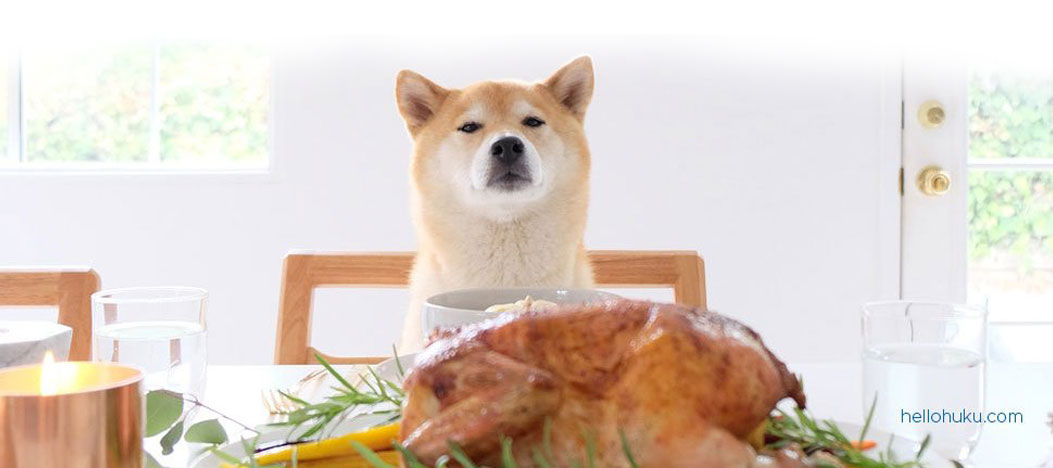Pet Holiday Food Guide: Foods that are Bad for Dogs
ATTENTION: Pet Parents! Holidays are here, which means cook, eat, nap and repeat. But while you and family are indulging and spending time together, it's important to make sure your pet isn’t begging at the table or eating dangerous scraps in the trash.
There's a long list of holiday foods that are bad for dogs (and cats). Knowing what Thanksgiving foods dogs can eat or what Christmas foods are toxic for pets is an important way to ensure happy holidays for both you and your pets. We've made it easy to know what foods could be harmful for your pets with our pet holiday good guide. Check out the list of foods that are not okay for dogs and cats to consume around the holidays down below.
Pet Holiday Food Guide
Toxic Foods for Pets
- Nuts: While nuts vary in health risks for pets, overall, they are high in fat. Macadamia nuts, in particular can be extremely toxic.
- Raisins and Grapes: Even in small quantities, raisins and grapes are extremely bad for dogs and can cause kidney failure.
- Ham: While ham and bacon are holiday favorites for humans, they are extremely high in fat which can cause pancreatitis in dogs.
- Alcohol: While this may be a no brainer, alcohol poisoning in pets is more common than you think with alcohol hidden in surprising places like rum-soaked fruitcake or unbaked dough containing yeast. Alcohol negatively affects dogs’ livers as it absorbs quickly into the bloodstream. If your pet ingests alcohol, it can lead to health issues like respiratory complications, drops in blood pressure, vomiting, tremors or worse.
- Caffeine: Caffeine is known to be fatal to canines and can often be found in coffee, tea or chocolate. All of these are on the Reader’s Digest’s list of people foods to avoid feeding your pet.
- Chocolate: Chocolate is bad for dogs because it contains caffeine as well as a chemical called theobromine, which is toxic to dogs. Large amounts are known to cause seizures and heart arrhythmias.
- Candy: Too much sugar can lead to diabetes, obesity or cavities, so vets recommend limiting sugar-intake in dogs’ diets. Artificial sweeteners like xylitol are particularly bad for dogs and can lead to liver failure. Wrappers and lollipop sticks are also a huge choking hazard for animals.
- Dairy: Dairy is difficult for dogs to digest and can lead to allergic reactions, upset stomach and diarrhea. A holiday favorite for humans, eggnog is not so good for dogs. Anything loaded with fat, sugar, milk and raw eggs is a no-no on the holiday food guide.
- Stuffing: Depending on the recipe, stuffing can be dangerous to your pets because of the high amounts of garlic, chives, safe and onion. These ingredients can damage blood cells and lead to anemia. Certain herbs can also cause central nervous system depression.
- Nutmeg: Another popular holiday ingredient, nutmeg is a toxic spice for dogs and can cause hallucinations, seizures and stomach aches.
- Salt: While salt isn’t necessarily poisonous, it can cause excess thirst and urination which can be dangerous for dogs with underlying kidney issues.
- Turkey Bones: Cooked bones are likely to splinter and can cause intestinal problems, so keep turkey and chicken bones out of the trash.
- Poinsettias: Not only are foods hazardous, but also be cautious of holiday plants like poinsettias. These are particularly dangerous and can leads to vomiting and stomach pain. Other plants to be cautious of are lilies, holly and mistletoe – just a few lily leaves or petals can be fatal to cats.
What to do if Your Dog Eats Toxic Foods
If you suspect your cat or dog got into holiday food, be ready to act. Head to the emergency vet immediately if your pet is in pain and exhibiting symptoms. Add the 24/7 Pet Poison Helpline to your phone before the season’s chaos begins.
*NOTE: We strongly recommend getting veterinarian approval before serving pets table scraps and always serving them in moderation.

Invisible Fence Brand’s Indoor Solutions can help keep pets away from food and other hazards in specific areas of the home during the holidays and any time of year. Learn about our Indoor Shields® units, Micro Shields® units and more.


